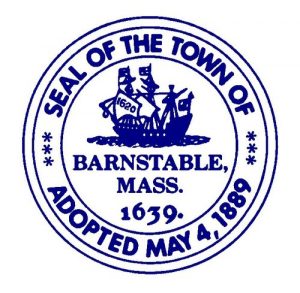
BOURNE – The Massachusetts Department of Transportation and the U.S. Army Corps of Engineers reached a formal agreement Tuesday to move forward with the replacement of the bridges spanning across the Cape Cod Canal.
A memorandum of understanding was signed by the Secretary of Transportation Stephanie Pollack and Colonel William Conde of the Army Corps. The agreement states that the two parties will work together to plan the bridge replacements, build the new structures, and transfer ownership of the bridges to the state in the future.
The state is seen as more fit to operate the bridges going forward, and the transition allows the Army Corps of Engineers to free up additional funding.
“These are obviously not easy agreements to draw up, but this one took a lot of hard work and collaboration as we all work towards the same goal,” Governor Charlie Baker said during a virtual meeting.
The Army Corps will continue to own and manage both the Bourne Bridge and Sagamore Bridge until the project is completed.
The bridge replacement project is slated to provide more lanes of travel, as well as improved pedestrian and bicyclist access.
Senator Elizabeth Warren praised MassDOT and the Army Corps of Engineers during the meeting for working together to reach this agreement, which she saw as a step in the right direction in addressing infrastructure issues across the state.
“Every Massachusetts resident knows that this project is long overdue, that we need these new bridges to improve safety, reduce traffic, and boost the regional economy,” Warren said.
Senator Ed Markey said he and Warren, along with Congressman Bill Keating, would continue to work to ensure that the federal government provides needed funding for the project.
The MOU itself, according to a release from MassDOT, states that the project’s funding “is a federal responsibility.”
In a prerecorded video that was played during the video conference, Keating added that the project is a modern solution to modern issues, and will lead to a “new chapter” in the history of Cape Cod.
“These are more than bridges,” Keating said.
“These are lifelines…they’re lifelines for our basic quality of life.”
























